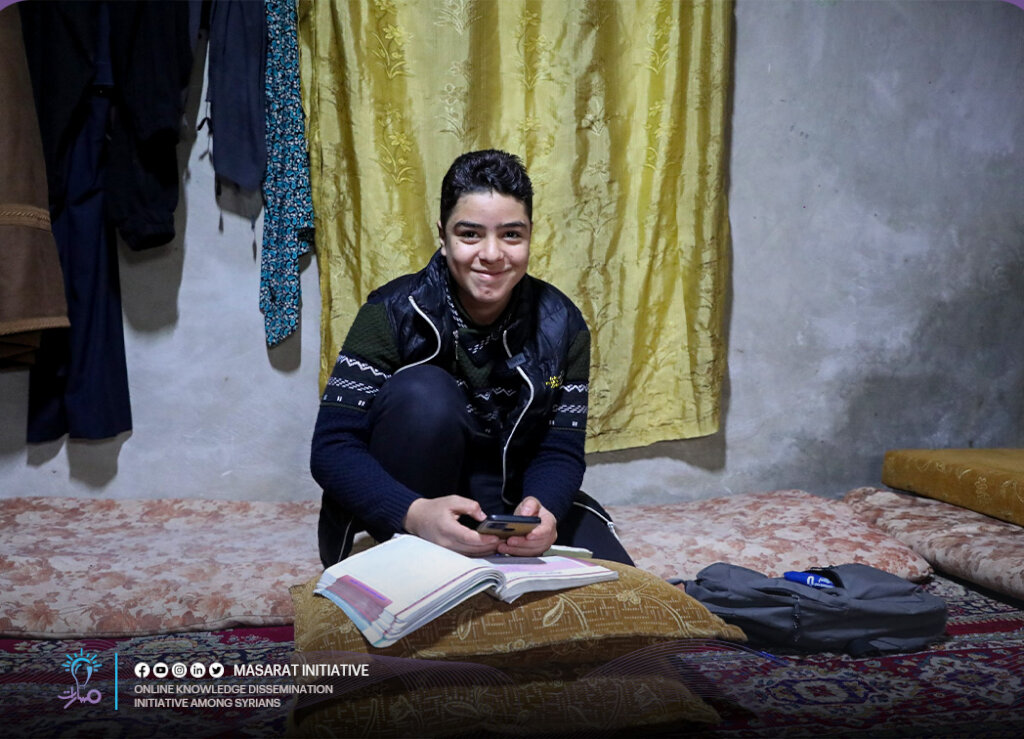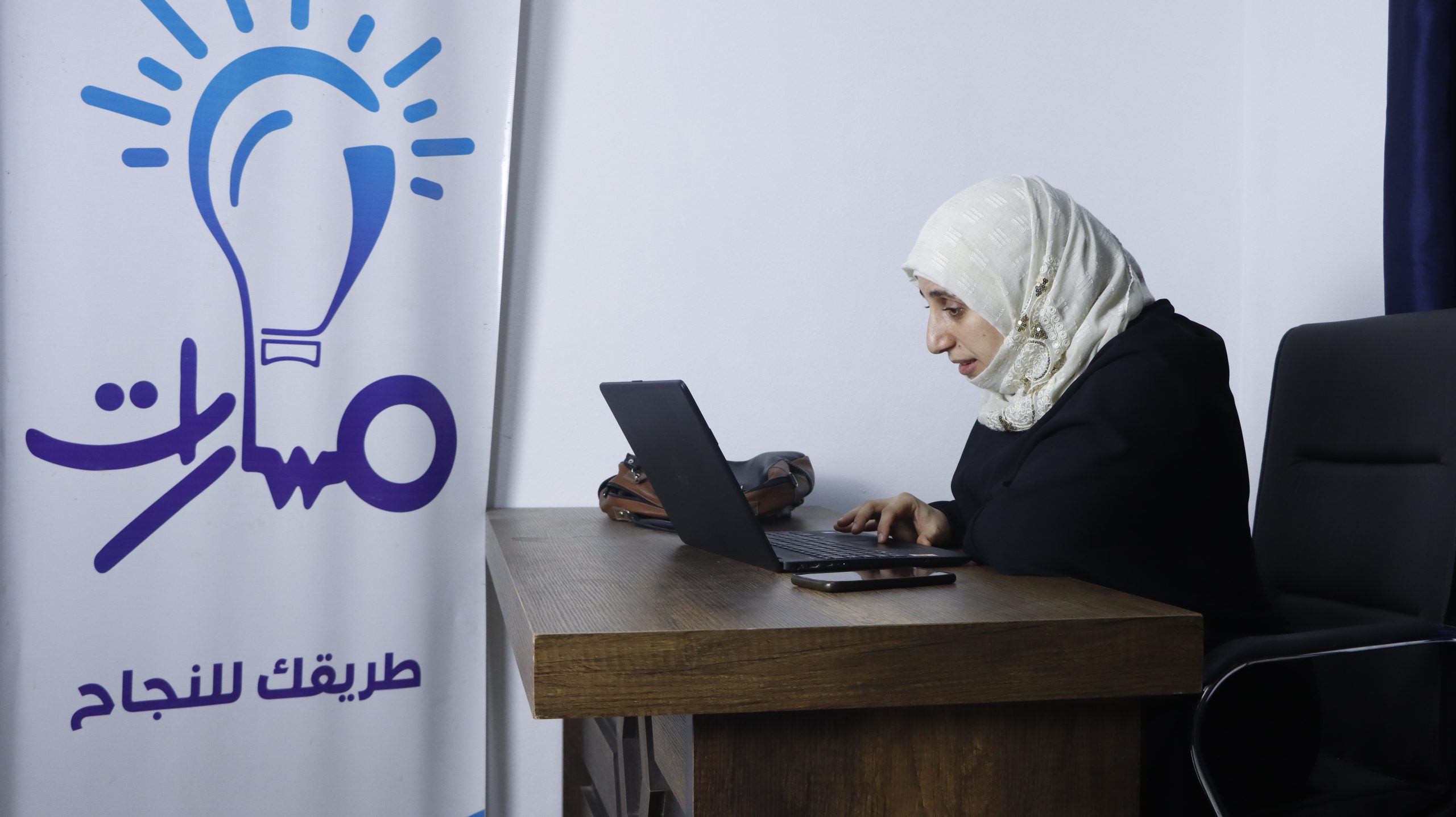In Islam, Zakat is a fundamental pillar, emphasizing the importance of wealth purification and social responsibility. It serves as a means to cleanse one’s earnings and support those in need, fulfilling a vital role in the community.
The Prophet Muhammad (peace be upon him) said: “The believer’s shade on the Day of Resurrection will be his charity.” This Hadith highlights the eternal significance of giving, particularly through Zakat, which not only purifies one’s wealth but also provides protection and blessings in the Hereafter.
For Muslims in the UK, where earnings and savings are predominantly in sterling, understanding the precise calculations for Zakat is essential to fulfilling this religious obligation correctly.
Learn how to calculate Zakat in sterling, including the value, nisab, and formulas essential for UK Muslims to ensure accurate payments.
What is Zakat & its Importance
Zakat, derived from the Arabic word meaning “to purify” or “to grow,” is one of the Five Pillars of Islam. It is a mandatory act of giving that benefits both the giver and the receiver.
Zakat plays a crucial role in alleviating poverty and promoting economic equality. Mentioned over 80 times alongside prayer in the Quran, it not only provides financial aid but also fosters empathy and strengthens social bonds between rich and poor.
In the UK, where the Muslim community is diverse and economically active, Zakat plays a vital role in supporting local charities, mosques, and welfare organizations. It also ensures that wealth circulates within the community, contributing to overall social stability.
Zakat nisab & Percentage
The nisab is the minimum amount of wealth a Muslim must possess before they are eligible to pay Zakat.
The nisab is calculated based on the value of either gold or silver. In the UK, given the economy’s structure and the prevalence of sterling as the currency, the nisab is commonly calculated in sterling.
The gold nisab is equivalent to 87.48 grams of gold, while the silver nisab is 612.36 grams of silver. As of 2024, with fluctuating market values, Muslims need to check the current prices of gold and silver to determine the nisab in sterling.
The Zakat rate is universally 2.5% of one’s total qualifying wealth, which includes cash, savings, investments, and other valuable assets.
Formula and Rules for Calculating Zakat in Sterling
Calculating Zakat is a vital Islamic obligation that ensures the purification of wealth and supports those in need. In the UK, as in other parts of the world, the process requires a clear understanding of Islamic guidelines and financial principles.
This guide provides a simple, step-by-step formula for calculating Zakat in sterling, ensuring accuracy and adherence to Islamic teachings.
Steps for Calculating Zakat:
1. Assess Your Total Wealth:
- Calculate all assets that qualify for Zakat. This includes:
- Cash on hand
- Savings and bank balances
- Investments (e.g., stocks, bonds, etc.)
- Business revenues
- Valuables like gold and silver
- Include any form of wealth that has been in your possession for at least one year.
2. Deduct Debts and Liabilities:
- Subtract any outstanding debts or financial liabilities from your total wealth.
- This ensures that you only pay Zakat on wealth that truly belongs to you after fulfilling your debt obligations.
3. Compare Your Net Wealth with the Nisab Threshold:
- Determine the nisab threshold based on either the value of:
- 87.48 grams of gold or
- 612.36 grams of silver.
- Convert this value into sterling (or your local currency) using current market rates.
- Check if your Net Wealth (after subtracting debts) is equal to or above the nisab threshold.
4. Calculate the Zakat Due:
- If your net wealth is equal to or greater than the nisab threshold, Zakat becomes obligatory.
Apply the 2.5% Zakat rate on your net wealth:
Net Wealth x 2.5% = Zakat Due
Important Rules to Keep in Mind:
- Annual Calculation:
- Zakat is not a one-time calculation but a yearly obligation. Ensure you calculate it on the same day each year.
- Accurate Accounting:
- Proper accounting is critical. Ensure that all eligible wealth is accounted for and accurately valued. Online Zakat calculators or consultations with Islamic scholars can help.
- Market Value Fluctuations:
- The nisab threshold, calculated in sterling based on the value of gold or silver, can fluctuate with market prices. Always refer to current rates when determining nisab.
- Charity with Impact:
- The 2.5% rate ensures that Zakat is significant enough to support those in need without overburdening the giver.
- Eligible Beneficiaries:
- Ensure that Zakat is given to those eligible under Islamic law, prioritizing local needs within your community, including those in the UK if you live there.
How to Calculate Zakat in Pound Sterling
Calculating Zakat in pound sterling involves a methodical assessment of all Zakatable assets, including cash, savings, investments, and valuables like gold and silver.
To calculate, follow these steps:
- Identify and value these assets in sterling, using current market rates.
- Subtract any debts or liabilities due within the Zakat year to determine your net wealth.
- Compare this net wealth to the nisab threshold, based on 87.48 grams of gold or 612.36 grams of silver, converted to sterling.
Note: If the net wealth meets or exceeds the nisab, Zakat is obligatory at a rate of 2.5%. Regular updates of asset values and consultation with scholars or reliable Zakat calculators are recommended to ensure accuracy and adherence to Islamic principles.
Types of Money to Pay Zakat For
Money and Bank Accounts:
Money in the form of cash, savings, and bank accounts is one of the most straightforward categories for calculating Zakat. Since these assets are liquid and easily accessible, they are fully subject to Zakat if they exceed the nisab threshold.
The key is to accurately assess all money held across various accounts and to determine whether the total amount meets or surpasses the minimum nisab. If it does, 2.5% of this total must be given as Zakat.
Cash, savings, and current accounts
Cash held in hand, in bank savings, or current accounts is subject to Zakat. The total amount of cash and savings should be added together, and if it exceeds the nisab threshold in sterling, Zakat is due at 2.5%.
For instance, if a Muslim in the UK has £10,000 in a savings account and the current nisab is £2,000, they would be required to pay Zakat on £10,000, which would amount to £250.
Precious Metals and Jewelry:
Precious metals like gold and silver, often held as jewelry, are not only valuable assets but also subject to Zakat. Since these metals are considered wealth, they must be included in Zakat calculations if their total value surpasses the nisab threshold.
Proper evaluation of their current market value in sterling is essential to ensure accurate Zakat payment.
Gold, silver, and jewelry
Zakat on gold, silver, and jewelry is calculated based on the market value of these metals in sterling. If the combined value exceeds the nisab, Zakat is due at 2.5%.
For instance, if a Muslim’s gold jewelry is valued at £5,000 and the silver nisab is £400, the Zakat owed would be £125.
Investments
Investments represent a significant portion of wealth for many Muslims, particularly in the UK where financial markets are accessible and diverse. Whether in stocks, shares, or cryptocurrencies, these assets must be carefully evaluated for Zakat purposes.
Since investments fluctuate in value, it’s essential to assess their worth in sterling at the time of Zakat payment. If the total value exceeds the nisab threshold, Zakat is due at a rate of 2.5%.
Stocks, shares, and cryptocurrencies
For instance, if a Muslim holds a stock portfolio worth £15,000 and cryptocurrency valued at £5,000, with the combined value being £20,000, and this amount is above the nisab, Zakat owed would be £500.
Real Estate and Property
Real estate is a valuable asset class that can significantly impact Zakat calculations, particularly for Muslims in the UK, where property ownership is common. Zakat on real estate is not due on all properties; it applies primarily to those held as investments, rented out, or intended for sale.
Understanding how to accurately assess the value of these properties in sterling and distinguishing between personal and investment properties is essential for proper Zakat calculation.
Residential, investment, and land properties
Real estate properties, when used as investments or rented out, are subject to Zakat. The value of these properties must be assessed at the current market rate in sterling. However, properties used as personal residences are generally exempt from Zakat unless they generate rental income.
For example, if a Muslim owns an investment property in London valued at £300,000 with £200,000 in outstanding mortgage, Zakat would be calculated on the equity—£100,000 in this case—resulting in a Zakat payment of £2,500.
Business and Income
Business and income represent significant sources of wealth for many Muslims, and it’s essential to understand how Zakat applies to these earnings. Zakat on business income ensures that wealth generated through trade, services, or employment is purified and redistributed to benefit those in need.
Both business revenues and personal salaries are subject to Zakat, provided they exceed the nisab threshold after accounting for necessary expenses.
Business revenues and personal salary
Zakat on business revenues is calculated on the net profits, which are the earnings remaining after deducting all business expenses and liabilities. Similarly, personal salaries are subject to Zakat if, after covering essential living costs, they surpass the nisab.
For instance, if a business in the UK generates a net profit of £50,000 and the owner receives a salary of £30,000, after deducting expenses, Zakat would be calculated on the remaining amount. If the total is £20,000, the Zakat owed would be £500 (2.5%).
Valuables and Other Assets
Valuables and other high-worth items, such as diamonds, artwork, and rare collectibles, represent significant assets that must be considered when calculating Zakat. Although these items are often seen as luxury possessions, Islam requires that their value be included in the Zakat calculation if they are held as investments.
Properly assessing these assets in sterling and determining whether their total value surpasses the nisab is essential for fulfilling Zakat obligations.
Diamonds and other valuable items
Zakat is due on valuable items like diamonds, rare collectibles, and artwork if they are held with the intent of investment or financial gain. The current market value of these items in sterling must be considered. If their combined value exceeds the nisab, Zakat is payable at 2.5%.
For example, if a Muslim in the UK owns diamonds valued at £10,000, the Zakat due would be £250.
Debts
Debts and liabilities play a crucial role in determining the accurate amount of Zakat that is due. Islam recognizes the burden of debt, and therefore allows for its deduction when calculating Zakat. However, it is important to note that only the portion of the debt that is due within the current Zakat year can be deducted.
This ensures that the Zakat calculation reflects the actual financial situation of the individual, accounting for immediate obligations while still fulfilling the duty of charity.
Mortgages and other liabilities
When calculating Zakat, you can deduct the annual payments for mortgages and other liabilities from your total wealth.
For instance, if a Muslim in the UK has a mortgage with an annual repayment of £12,000, this amount can be subtracted from their total assets before calculating the Zakat due. This deduction helps ensure that Zakat is paid only on the wealth that is truly surplus, after meeting necessary financial commitments.
Examples of Zaqat Calculation in Pound Sterling
Understanding how to calculate Zakat in sterling can be simplified by looking at practical examples. Suppose a Muslim in the UK has the following assets:
- £5,000 in savings
- Gold jewelry valued at £2,000
- Stocks worth £3,000
- A rental property with equity worth £50,000
- A diamond collection valued at £1,000
Their total wealth would be £61,000. If their annual mortgage payment is £12,000, this would be deducted, leaving a net wealth of £49,000. Zakat would then be calculated as 2.5% of £49,000, which is £1,225.
UK Zakat Calculators 2024 in Sterling
In the UK, several online Zakat calculators are available to help Muslims accurately determine the amount of Zakat due in sterling.
These tools are crucial for ensuring that Zakat is calculated in accordance with Islamic principles, taking into account current values and personal circumstances.
Gold Zakat Calculator
The Gold Zakat Calculator assists in determining Zakat on gold by allowing users to input the weight and current market value of gold in sterling. This tool ensures an accurate calculation of Zakat on gold assets.
Money Zakat Calculator
For calculating Zakat on cash, savings, and other liquid assets, the Money Zakat Calculator is particularly useful. By entering the total amount of these assets in sterling, this calculator helps Muslims quickly determine their Zakat liability.
Zakat Calculators Online
There are also comprehensive Online Zakat Calculators available that handle multiple asset types, including investments, property, and precious metals. These calculators provide a detailed breakdown of the Zakat due on each category, ensuring that every aspect of wealth is accounted for properly.
By using these calculators, Muslims in the UK can confidently fulfill their Zakat obligations, knowing that their calculations are both accurate and compliant with Islamic guidelines.
Zakat Eligibility in the UK
In the UK, not all Muslims are required to pay Zakat. Eligibility depends on the individual’s wealth and whether it exceeds the nisab threshold. Generally, any Muslim who possesses wealth above the nisab for one lunar year (hawl) is required to pay Zakat.
The wealth must be in the form of cash, savings, investments, or other Zakatable assets.
Zakat Donation and How to Donate
Once the Zakat amount is calculated, it must be distributed to eligible recipients. In the UK, there are various ways to fulfill this obligation.
- Many Muslims prefer to give directly to those in need, ensuring a personal connection to their Zakat.
- Others choose to donate to charities that specialize in distributing Zakat according to Islamic principles, trusting these organizations to allocate their funds appropriately.
- Additionally, online platforms provide convenient options for Zakat payment, making it easier for Muslims to fulfill their duty.
- In addition to local efforts, you can extend your support to global humanitarian initiatives outside the UK. For instance, Masarat initiative offers free online education to vulnerable Syrian students, including orphans and refugees in camps.
Donations made in pounds sterling to such initiatives can be included as part of your Zakat, provided they are directed to eligible recipients.
It is crucial to ensure that the organizations you donate to comply with both UK regulations and Islamic standards. For example, contributions to initiatives like Masarat are secure and trustworthy, as they are reliable from reputable platforms like GlobalGiving 501c.
By taking these steps, Muslims in the UK can confidently fulfill their Zakat obligations, knowing that their donations in pounds sterling are making a meaningful impact on the lives of those in need, both locally and globally.
Masarat Initiative for Online Education and Knowledge Dissemination in Syria
Syrian Refugee and displaced communities live under harsh conditions, where access to quality education becomes a significant challenge.
The lack of basic resources stands as a barrier to achieving their educational dreams, but with the right support, we can change this reality.
By donating your Zakat in pounds sterling, you contribute to igniting the flame of knowledge in the hearts of refugee, displaced, orphaned, and special needs children. This contribution is a beacon of hope that opens the doors to a brighter future for these children.
Your Zakat donation today is an ongoing charity for you, providing a lifelong impact.
It supports the comprehensive knowledge services provided by Masarat, aimed at empowering individuals within their communities by equipping them with essential tools, including school education, student activities, academic advising, vocational training, psychological support, and technical assistance.
Your donation today is an opportunity to bring education and knowledge to those who need it most.










